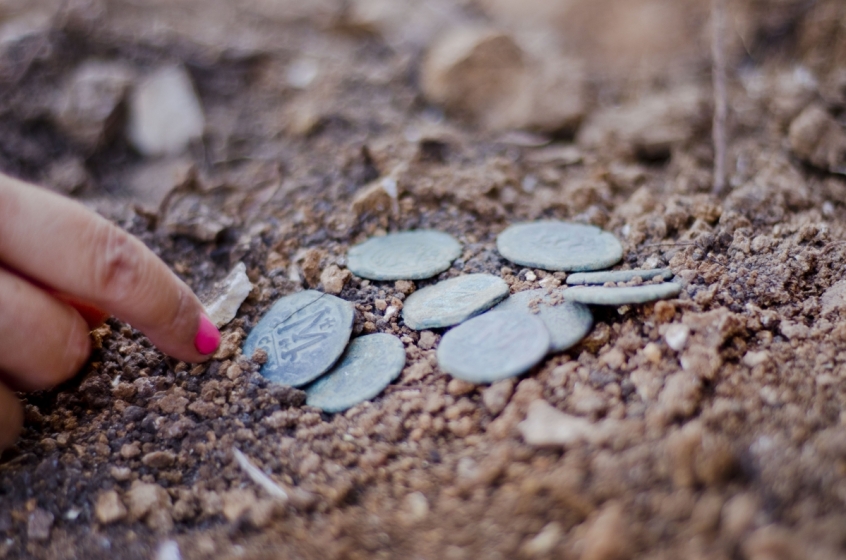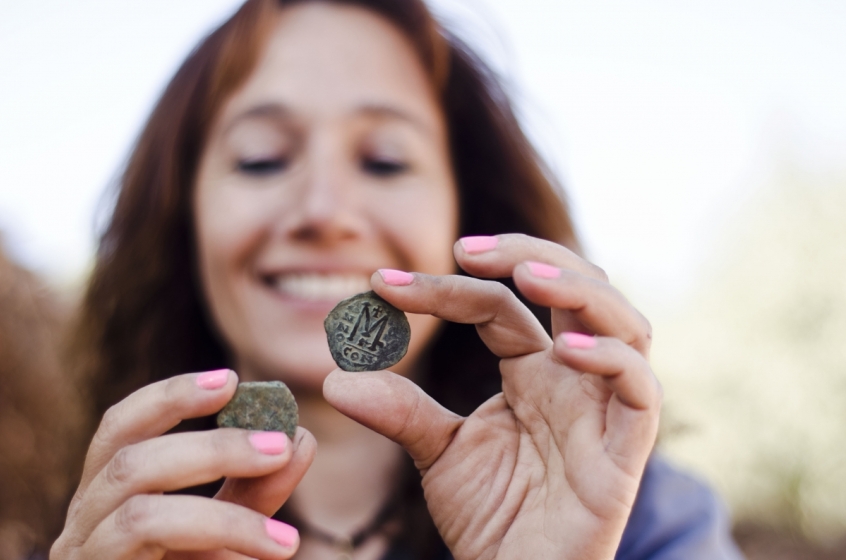
A stashed collection of ancient bronze coins that may have belonged to Christians fleeing invading Persian forces has been found on the highway to Jerusalem in an archaeological dig.
The coins date back to the late Byzantine era of 7<sup>th century CE, and were discovered by the Israel Antiquities Authority (IAA) in an excavation that began in June 2016.
The uncovered coins could be easily dated because they bear the images of the Emperor's under which they were made. In this case they bore the icons of emperors Justinian (483-565 AD), Maurice (539-602 CE) and Phocas (547-610 CE). They were all minted in present day Turkey. Each coin shows the image of the emperor in military dress, carrying a cross, while the reverse of the coin shows its denomination.
The coins were were discovered alongside a collapsed two-storey building, which once served Christian pilgirims on their way to Jerusalem. The dig also discovered an ancient winepress.
'The hoard was found amongst large stones that had collapsed alongside the building,' said the director of the excavation, Annette Landes-Nagar. 'It seems that during a time of danger the owner of the hoard placed the coins in a cloth purse that he concealed inside a hidden niche in the wall. He probably hoped to go back and collect it.'

Archaeologists believe the stash was made by Christians fleeing the Sassanid Persian invasion in 614 CE. That invasion marked the end of the Eastern Roman Empire, and the site of the coins was abandoned until it eventually disappeared from view. The ruins of a Byzantine church are nearby the site.
The excavation came ahead of the planed widening of Highway 1 between Tel Aviv and Jerusalem. The Netivei Israel Company, who are financing the higway, and the IAA are working together to conserve the historic site as a 'landmark in the scenery' alongside Highway 1.
Excavation digs are commonplace ahead of construction work in Israel, where numerous discoveries of ancient relics are still made today.













